Hello and welcome to the 18th issue of the COVID-19 Hygiene Hub news bulletin.
In this second issue of 2021, we wanted to highlight that we are in the process of developing a new section of our website to showcase the breadth and diversity of the in-depth technical assistance the Hygiene Hub can provide to you - so watch this space. In the meantime, please contact us at support@hyginehub.info to discuss how we may tailor our support to your needs.
We have also added a filter function to the case study page to help you view the collection by country and topic. This month, we have a new case study for you in which Amref Health Africa share how they used a phone-based learning platform to train Community Health Volunteers in Kenya.
As a reminder, we have now moved to a monthly schedule, so you can expect our news bulletin in the last week of each month. All previous news bulletins are available here.
As always, if you have a question for the Hygiene Hub or would like to share your project, we encourage you to contact us at support@hygienehub.info.
Technical resources
Our growing collection of technical resources continues to bring together the latest evidence and guidance to support you in your COVID-19 response.
In the coming weeks, we will have two key resources for you:
A summary report on integrating vaccine promotion into COVID-19 prevention work; and
A detailed learning brief on disability and inclusion, which synthesises lessons learnt from practitioners around the world during the pandemic.
In the meantime, please check out our summary reports on longer-term, sustainable programming and economics of hygiene programmes, which provide useful insights to help you adapt your hygiene programmes as the pandemic continues and vaccine rollout gains traction.
All of our technical resources continue to be available in English, French, Spanish, and Arabic. If you have requests or ideas for future resources, please email us at support@hygienehub.info.
Areas of technical support
Together with our partners, we provide a range of in-depth technical assistance. This month this has included:
Oxfam and Action Contre la Faim have been trialling a Community Perception Tracker during the pandemic. We work with them to strengthen the data analysis process and explore commonalities in the data emerging across countries. The analysis will cover seven countries across Africa, Asia and the Middle East.
Save the Children in Syria asked for the Hub’s support to develop a survey tool that could be used with children to assess their COVID-19 prevention work in temporary learning environments and schools in Syria.
The UK’s Foreign, Commonwealth and Development Office (FCDO) asked us to review a document on the behavioural considerations for COVID-19 vaccine uptake and rollout.
National Business Compact Coalition (NBCC) Kenya has been involved in the rapid scale-up of handwashing facilities in public places and asked the Hub for support with their evaluation of these facilities, with a specific focus on their sustainability and operation and maintenance requirements.
Common queries to the Hygiene Hub have included:
How can we make COVID-19 prevention behaviours ‘stick’ when people are getting tired of them?
Check out the resource on what works to change handwashing and hygiene behaviours and the resource on sustainability, economics and advocacy.
How can we effectively monitor our COVID-19 prevention programmes?
Read our guidance on M&E to appreciate the general principles for monitoring and evaluating COVID-19 prevention projects.
Is it better to promote bar soap or liquid soap?
Check out our FAQs: Are some types of soap more effective than others?, Can soapy water been used for handwashing? and Is alcohol-based hand rub better than soap?
Sharing case studies on your COVID-19 response
Recently, we have improved our case studies page to help you search through our library by country or topic. Do explore this page, it is a great opportunity to learn from each other.
Image: Filtering Hygiene Hub case studies by country or topic
We also have a new case study from Kenya where 10 counties have used the Leap mHealth platform remotely to train Community Health Workers (CHVs) about COVID-19. Colleagues from Amref Health Africa in Kenya reflect on the use of simple text messages, Interactive Voices Recordings (IVR) and collaboration by CHVs with their peers and supervisors through dedicated group chats in order to increase the knowledge and responsiveness of CHVs to the pandemic in their community.
Image: A text message on a module section of the COVID-19 training displaying on a Community Health Volunteer’s phone during an onboarding session in Matuga, Kilifi County, Kenya.
Would you be willing to share your experience with the sector?
If you are interested in sharing your work and want to contribute to our growing collection of case studies, please contact claire.collin@lshtm.ac.uk. We are currently particularly keen to hear about programmes that incorporate advocacy, policy or sustainability components.
Social media channels
If you would like updates on the COVID-19 Hygiene Hub through social media, follow us on Twitter @hygiene_hub, Facebook @covid19hygienehub and LinkedIn.
